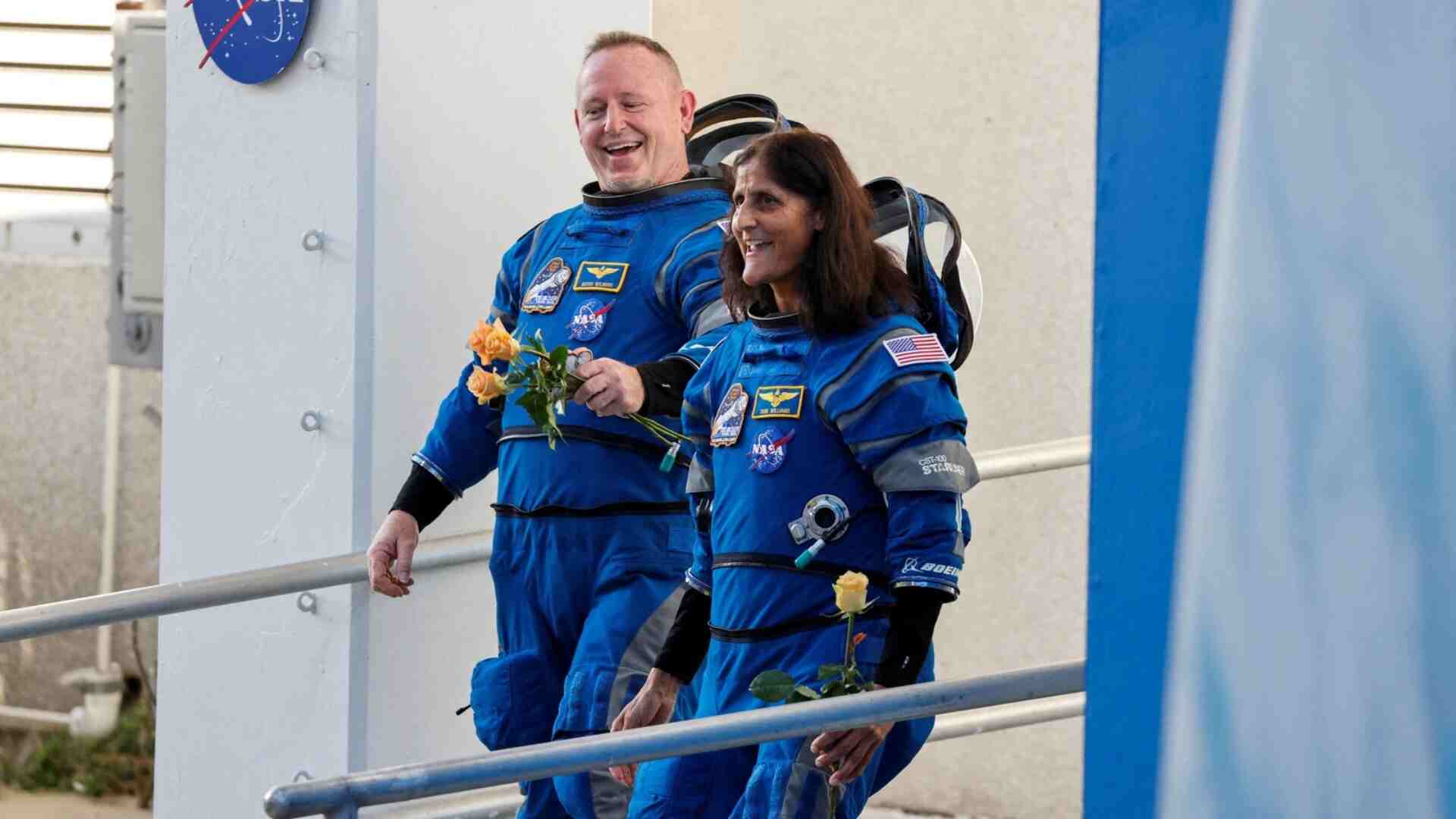NASA astronaut Sunita Williams, along with Barry ‘Butch’ Wilmore, remains on the International Space Station (ISS) due to a helium leak in their spacecraft’s service module.
Their planned return on June 14 has been postponed to June 26, with the possibility of additional delays. The Starliner spacecraft experienced the leak shortly after docking at the ISS on June 6, underscoring the challenges of space travel.
Health Risks from Prolonged Microgravity Exposure
Williams is facing significant health issues due to extended exposure to microgravity, particularly rapid bone density loss. In microgravity, bones do not support weight, leading to density loss akin to osteoporosis. Despite strict exercise routines aimed at mitigating these effects, “bone loss remains an inevitable consequence of prolonged space missions,” making her more vulnerable to fractures.
Microgravity also affects various bodily functions. Fluid redistribution leads to facial puffiness and reduced fluid volume in the legs, disrupting cardiovascular function and complicating blood pressure regulation upon return to Earth.
NASA uses specialized exercise programs and nutritional strategies to combat bone loss. Astronauts engage in resistance and aerobic exercises to maintain bone density.
Additionally, microgravity affects the urinary system, raising the risk of kidney stones due to higher calcium levels in urine. Hormonal changes and shifts in gut microbiota further disrupt nutrient absorption and overall health, necessitating ongoing medical monitoring and preventive care.
Risks Associated with a Delayed Return:
- Fluid Imbalance: Chronic dehydration or fluid overload
- Muscle and Bone Loss: Weakened skeletal system and muscles
- Fluid Redistribution: Puffy faces, increased intracranial pressure, vision, and cognitive issues
- Radiation Risks: Increased risk of radiation sickness and cancer from cosmic radiation
- Mental Health Concerns: Issues related to isolation, confinement, and high-risk environment
- Weakened Immune System: Greater susceptibility to infections, as noted by Dr. Rakesh Gupta, Internal Medicine, Indraprastha Apollo Hospitals, in the Indian Express.










